The Beal Challenge!
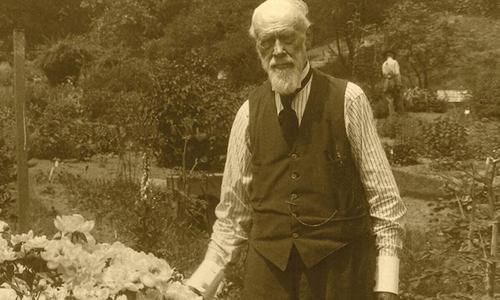
The year was 1879. The location—Michigan State University. The event—a unique scientific experiment to determine the viability of seeds if left buried and undisturbed by outside forces. Professor of Botany, Dr. William Beal, gathered 20 batches of 50 seeds from 21 different plant species to put in each of 20 glass pint bottles, combined with sandy soil. He buried them on campus property with uncorked mouths facing downward at an angle to prevent water from getting to the seeds while still allowing for exposure to moisture and sand. The seeds were left in this dormant state.
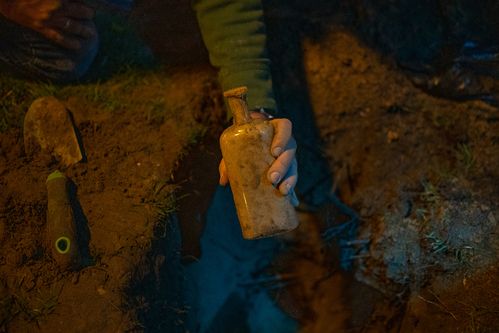
Source: Derrick L. Turner/Michigan State University
After 5 years, the first of the 20 bottles was unearthed. Eventually, this time span was increased to digging up a bottle every 10 years, and in 1980, this cadence was upped to 20 years. Due to the pandemic, the most recent unearthing occurred in 2021.
As a Christian, I am familiar with another narrative about seeds—this one told as a parable by the Son of God Himself.

Matthew 13:3-8; 18-23
Then He spoke many things to them in parables, saying: “Behold, a sower went out to sow. And as he sowed, some seed fell by the wayside: and the birds came and devoured them. Some fell on stony places, where they did not have much earth: and they immediately sprang up because they had no depth of earth. But when the sun was up they were scorched, and because they had no root they withered away. And some fell among thorns, and the thorns sprang up and c hoked them. But others fell on good ground and yielded a crop: some a hundredfold, some sixty, some thirty.
. . . When anyone hears the word of the kingdom and does not understand it, the evil one comes and snatches away what has been sown in his heart. This is what was sown along the path. As for what was sown on rocky ground, this is the one who hears the word and immediately receives it with joy, yet he has no root in himself, but endures for a while, and when tribulation or persecution arises on account of the word, immediately he falls away.
What you have just read is a biblical model of evangelism. David Wheeler in the book, Evangelism Is (2010), writes that evangelism can be thought of as spiritual farming. The church was born in an agricultural society, so the ideas of sowing, planting, and harvesting were easy for them to understand.
One of our speakers, Dr, Juan Valdes, puts this concept into perspective in one of his messages, “4 Key Principles of the Spiritual Harvest” as follows*:
- The harvest is a process, not an event. The fields have to be prepared, seeds planted and watered, and then God has to give the seed life, so it will grow and bear fruit.
- There are different roles in the harvest. Every aspect is equally important. We must begin by plowing the fields through prayer.
- We can also plow the fields through community service. Intentionally share Christ by modeling biblical servanthood, and combine simple acts of kindness with intentional personal evangelism. (Note: Servant Evangelism by Albin Reed and David Wheeler, includes 58 project ideas for individuals, families, or churches.)
- Once the soil is plowed, the seeds need to be sown. In order to have a large harvest, many seeds must be planted. The more seeds we sow, the larger the harvest we can expect to receive. Jesus illustrated this with the parable of the sower in Matthew 13.
Believers in Christ should be focused on planting seeds, having conversations where we can speak about the gospel or lead others to thinking about God and His interactions in our daily lives, responding to difficult questions, and praying with people who are hurting.
We often get caught up in the thinking that every time we talk to someone about God or share the gospel, that they should get saved; otherwise, we’ve failed. Remember, it’s always a process, not an event. Our responsibility is to be part of the process, sowing the seeds; it is God who gives the increase (I Corinthians 3:6-9).
We often get caught up in the thinking that every time we talk to someone about God or share the gospel, that they should get saved; otherwise, we’ve failed. Remember, it’s always a process, not an event. Our responsibility is to be part of the process, sowing the seeds; it is God who gives the increase (I Corinthians 3:6-9).

So what were the results of Dr. Beal’s experiment? Well, for one thing, it’s still ongoing, but the results to date are perfectly in line with Jesus’ parable of the sower. In each of the bottles that have been unearthed so far, there were multiple seeds that germinated and sprouted into viable plants. Yes, many did not, but EVERY bottle contained seeds that took root and yielded a harvest. In fact, the seeds extracted from the bottle dug up in 2021—an amazing 142 years after being buried—yielded 13 viable plants!
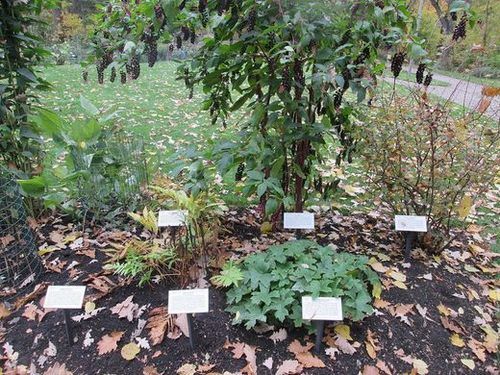
What’s the real lesson here? … Not just that sharing our faith is a process, but more importantly, we can never know how many of the spiritual “seeds” we’ve planted will take root or how long it will take for any to take root. I’m speaking from the experience of praying for my Dad for more than four decades (My mother prayed for him for over 50 years!), and seeing seeds planted by myself and others for that duration before he finally surrendered to God’s wooing (Read more about this story HERE in the blog entitled, Please say “Yes!”).
May we, much like Dr. William Beal, enthusiastically plant seeds of God’s love and grace, expectantly waiting and praying for a spiritual harvest. Our mantra—like one of our Reasons for Hope’s t-shirts—should be “When I get to Heaven, I want to see you there!”
The more seeds we sow, the larger the harvest we can expect to receive.
*Note: This section on the “4 Key Principles of the Spiritual Harvest” is just one of many of the concepts taught in Unit 1 of our new DeBunked IMPACT Curriculum.
Author Bio:
Holly Varnum, Director of Curriculum Development at Reasons for Hope joined us September 2021 to launch curricular materials to support many of our media resources. With degrees in education, curriculum and instruction, and educational administration, she comes with over three decades of experience in working with teens and adults in camp ministry, teaching and administration, and curriculum writing (A Beka Book, Focus on the Family, and Answers in Genesis to name a few). God has provided her with a well-rounded educational perspective through service in Christian schools, charter schools, public schools, homeschooling, Christian camps, and local church ministry. She has been a classroom teacher, instructional coach, administrator, camp counselor, Sunday School teacher, ladies’ Bible Study teacher, and conference speaker and looks forward to using her passion for God’s truth within the context of Reasons for Hope.
Her hobbies include cooking and baking, hiking, camping, travel, and working on do-it-yourself projects. Holly and her husband, Paul, (RforH*’s Special Content Manager) also enjoy any time they can spend with their three grown daughters, two sons-in-law, and two grandchildren (so far!). They live in the beautiful state of Maine, and yes, eat lobster (properly pronounced “lobstah”) whenever they get a chance!
Holly Varnum, Director of Curriculum Development at Reasons for Hope joined us September 2021 to launch curricular materials to support many of our media resources. With degrees in education, curriculum and instruction, and educational administration, she comes with over three decades of experience in working with teens and adults in camp ministry, teaching and administration, and curriculum writing (A Beka Book, Focus on the Family, and Answers in Genesis to name a few). God has provided her with a well-rounded educational perspective through service in Christian schools, charter schools, public schools, homeschooling, Christian camps, and local church ministry. She has been a classroom teacher, instructional coach, administrator, camp counselor, Sunday School teacher, ladies’ Bible Study teacher, and conference speaker and looks forward to using her passion for God’s truth within the context of Reasons for Hope.
Her hobbies include cooking and baking, hiking, camping, travel, and working on do-it-yourself projects. Holly and her husband, Paul, (RforH*’s Special Content Manager) also enjoy any time they can spend with their three grown daughters, two sons-in-law, and two grandchildren (so far!). They live in the beautiful state of Maine, and yes, eat lobster (properly pronounced “lobstah”) whenever they get a chance!
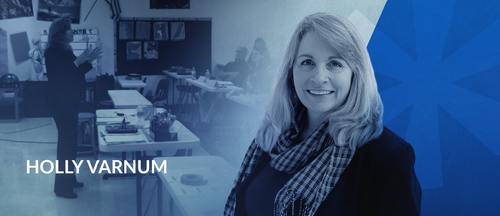
To learn more about Holly, or to book her as a speaker for educational, ladies', or girls' events, click HERE.
Our Newest Releases!
IMPACT curriculum trains and equips young adult believers to stand boldly on the Word of God. It helps them know why they believe what they believe so that, in turn, they can live and share their faith with confidence.
Unit 1: Foundations begins with the basic principles of apologetics, biblical worldview, and critical thinking. This groundwork prepares students to unpack the rich content of the attention-grabbing DeBunked videos while they build relationships with others, actively apply the lesson content, and find true purpose in planting seeds of faith in a world that needs the hope of Christ. Click HERE to see other related products or to order this valuable resource.
Unit 1: Foundations begins with the basic principles of apologetics, biblical worldview, and critical thinking. This groundwork prepares students to unpack the rich content of the attention-grabbing DeBunked videos while they build relationships with others, actively apply the lesson content, and find true purpose in planting seeds of faith in a world that needs the hope of Christ. Click HERE to see other related products or to order this valuable resource.
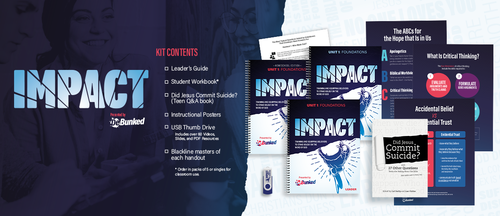
We also encourage you to purchase our newest ministry book, Did Jesus Commit Suicide? And 27 Other Questions That Teens Have About the Bible (that adults want to know, too) to help you answer questions from a biblical worldview that teens are asking today. Click HERE.
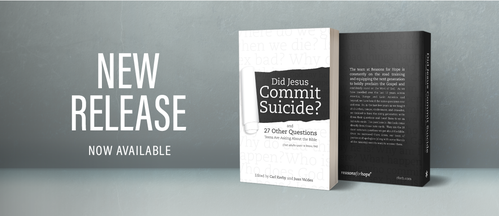
We Have an App for That!
Our app is FREE and is designed to encourage you in your walk with Christ and to train and equip you and your family in staying bold in your faith. Just click HERE, and look for the blue asterisk on the black background.
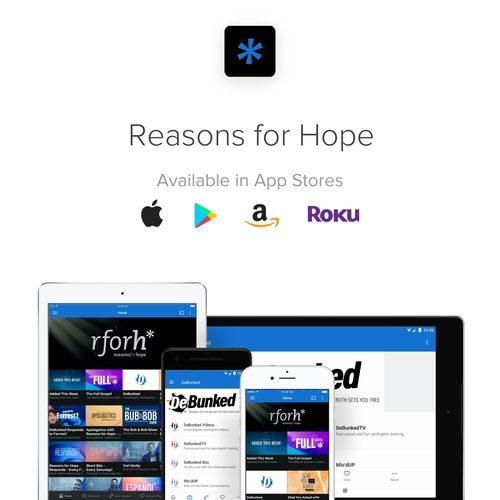
Posted in Holly Varnum
Posted in Dr. William Beal, seed experiment, Michigan State University, Matthew 13, Parable of the sower, evangelism, spiritual harvest, a process; not an event, having conversations, answering questions, praying, Be part of the process., Impact Curriculum, Reasons for Hope, Holly Varnum
Posted in Dr. William Beal, seed experiment, Michigan State University, Matthew 13, Parable of the sower, evangelism, spiritual harvest, a process; not an event, having conversations, answering questions, praying, Be part of the process., Impact Curriculum, Reasons for Hope, Holly Varnum
Recent
Archive
2026
2025
February
March
April
May
June
July
August
November
2024
February
March
April
May
June
July
August
September
November

No Comments